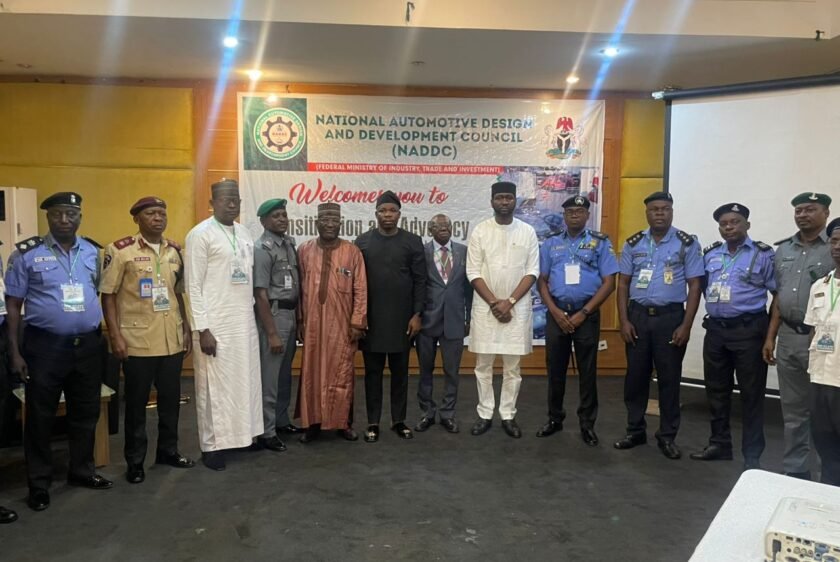By Chuks Oyema-Aziken
The Federal Government, through the National Automotive Design and Development Council (NADDC), has unveiled a comprehensive sensitisation and advocacy programme on the implementation of End-of-Life Vehicle (ELV) Regulations.
The move is a major step toward environmental sustainability and economic diversification.
At the event in Abuja, Deputy Chairman of the House Committee on Environment, Hon. Terseer Ugbor, emphasized the urgent need for Nigeria to adopt structured automotive waste management policies.
According to him,“With the growing awareness of the impacts of climate change and pollution, NADDC must take the lead in implementing regulatory frameworks that promote sustainable automotive recycling and waste management.”
Also, Director-General of NADDC, Mr Oluwemimo Joseph Osanipin, described the programme as a significant milestone in transforming Nigeria’s automotive sector.
“This sensitization programme will deepen stakeholders’ understanding of ELV regulations and align everyone on a unified path for sustainable implementation,” he said.
He further announced the establishment of a multi-agency steering committee to drive the implementation process. This committee will comprise representatives from relevant institutions to ensure compliance, address challenges, and oversee the realization of the regulation’s objectives.
The MD/CEO of Recycling and Economic Development Initiative of Nigeria ( REDIN), Dr. Fyneray Mbata, described the initiative as a trans-formative national agenda. He stated that the regulation is not just about waste—it is a strategic blueprint for cleaner cities, greener industries, and inclusive economic growth.
Dr. Mbata also reaffirmed REDIN’s commitment to building a transparent and efficient ELV recycling ecosystem—from vehicle deregistration to dismantling and material recovery—while encouraging fiscal incentives and strong inter-agency collaboration
A pilot automotive recycling facility has been proposed for the Federal Capital Territory. The facility will be equipped for dismantling, crushing, shredding, and separating materials—and is expected to be replicated across the country.
This pioneering ELV initiative is projected to create over 40,000 direct and indirect jobs across Nigeria, protect the environment from hazardous waste and pollution, enhance road safety by removing abandoned and decaying vehicles from highways, and generate over ₦100 billion annually in revenue with an estimated ₦1 trillion in value for the Nigerian economy through a circular economy framework
The event highlighted the multi-stakeholder nature of the regulation, with roles expected to be played by law enforcement agencies such as the police, FRSC, VIO, and Customs, as well as state revenue services, vehicle owners, tax authorities, development partners, recyclers and private investors.
The event brought together critical stakeholders across the automotive and environmental ecosystem.
By embracing circular economy principles, Nigeria can reintroduce automotive waste into productive use, reduce pollution, and unlock massive job opportunities for its citizens.
As Nigeria, with over 200 million citizens and more than 15 million registered vehicles, continues to generate over 300,000 scrap vehicles annually, this regulation aims to formalize and structure what is currently an informal and environmentally harmful system. Stakeholders agree that the ELV regulation represents a timely and strategic shift toward an economically vibrant and environmentally responsible Nigeria.





